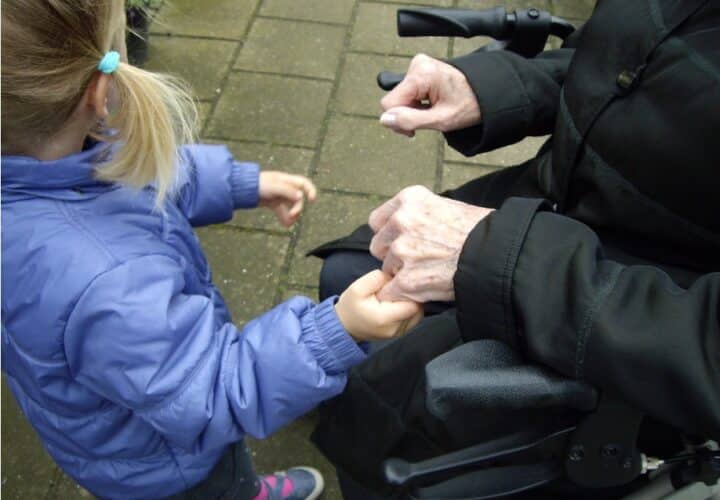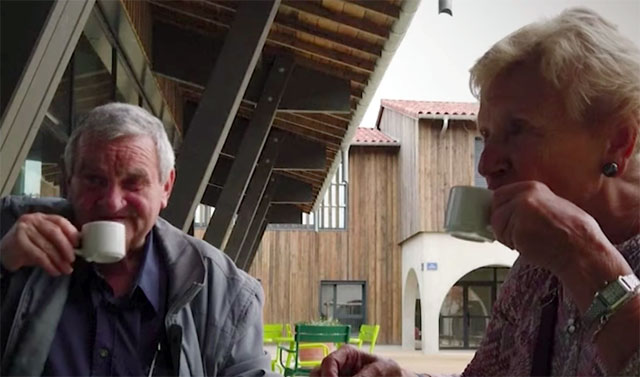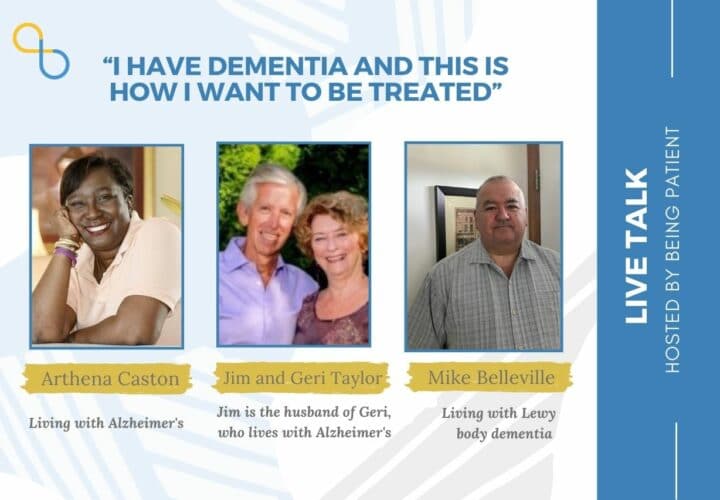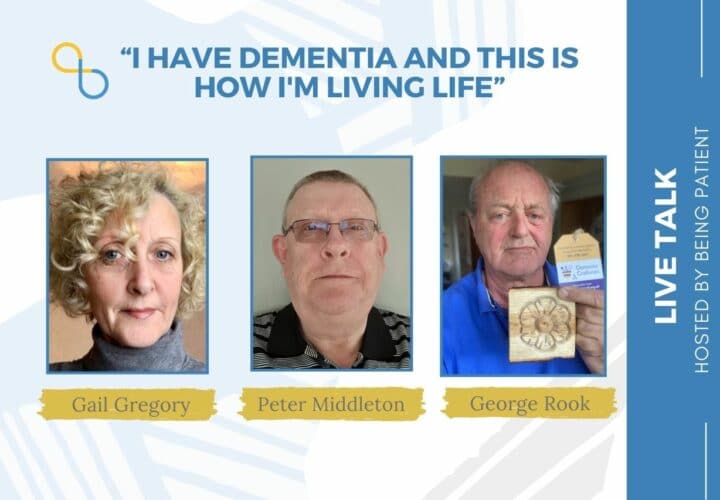A Dutch initiative that partners elementary school classes with care homes won Alzheimer Europe’s inaugural Anti-Stigma Award, which celebrates efforts to dismantle negative stereotypes of dementia.
The prevalence of dementia is rising globally — and efforts to fight the stigma around dementia are on the rise, too. In the Netherlands, elementary school kids spend time with people living with dementia in care homes. In Italy, a campaign aims to make communities more welcoming for people living with dementia. In the UK, Punjabi-speakers with dementia shared their experiences in their own language.
For many people, dementia is loaded with negative stereotypes and perceptions of limitations, noted Alzheimer Europe Executive Director Jean Georges. But efforts are underway across the continent to change those attitudes. With a new award, given for the first time in October 2022, Alzheimer Europe is highlighting anti-stigma initiatives in hopes of inspiring other communities to take steps to be more dementia inclusive.
Stigma associated with dementia can lead people to postpone getting a diagnosis. A survey by Alzheimer Europe found that in more than a third of cases, individuals delayed going to the doctor for help. An important factor in that, Georges said, is how dementia is perceived.
Often, people’s ideas of dementia are associated with the very late stages of the disease, Georges said, rather than early stages when people can live well after they have been diagnosed.
According to Georges, Alzheimer Europe has been trying to reduce stigma around dementia in order to encourage earlier diagnosis, which gives individuals and families more opportunity to access services and care. When dementia goes undiagnosed, it can lead to crisis management situations, he said.
“By being more open about the disease, more people would be able to come forward, would be able to get diagnosed at an early stage and get the right and adequate post-diagnostic support,” Georges told Being Patient.
Many communities across Europe already have innovative initiatives that combat negative perceptions of dementia, Georges said. With the award, the organization hopes to highlight these efforts and inspire other communities to take similar actions.
Out of the 52 initiatives submitted for the award, a Dutch project that pairs primary schools with care homes was selected as the winner.
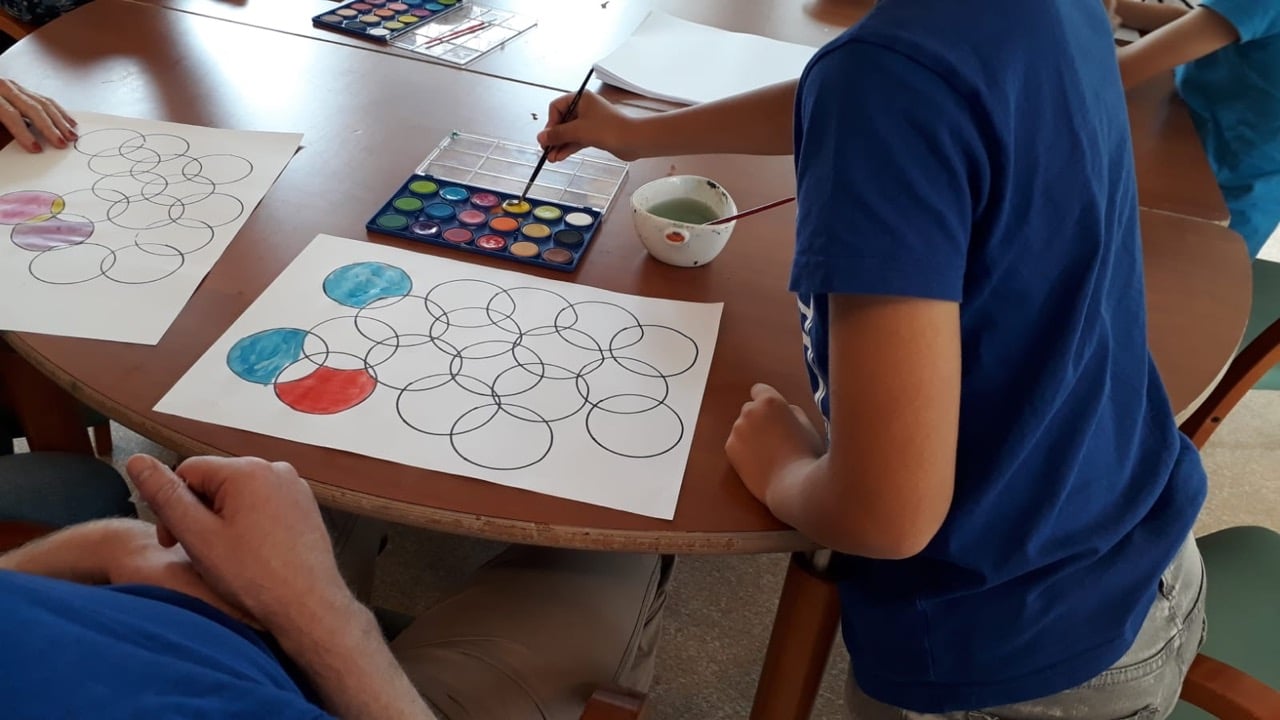
First launched in the early 2000s in the Netherlands’ southern province of Limburg, the Adoption Project, or Adoptieproject in Dutch, brings kids between the ages of 10 and 12 in contact with people living with dementia locally. By coordinating these connections, the initiative introduces kids at a young age to the disease.
“Dementia is part of our society,” Adoptieproject coordinator Fania Dassen told Being Patient. “They should be aware, and it should be normal to talk about.”
The project partnered with the national organization Alzheimer Nederland in 2018 and started to expand to other parts of the country. The program helps set up connections by introducing schools with local care homes or day care services that work with people living with dementia. Then volunteers or staff members lead a lesson for school kids about the brain and what dementia is. They also teach advice for interacting with people living with dementia, like speaking slowly and in short sentences.
The size and frequency of visits is tailored to what works for each partnership, according to Dassen. In some cases, children take turns visiting in pairs once a week. Sometimes a whole class will come for a big gathering in a cafeteria.
Activities also vary. Children and people living with dementia might play games or tell stories, finding common ground in local culture. One class learned regional songs and performed a concert for people living with dementia. Eventually the whole room was singing along together, Dassen said. “It really connected young and old.”
Niels Janssen, a Maastricht University researcher and organizer with the Adoptieproject, said kids tend to be engaged and nonjudgmental when visiting care homes.
“Children are very open and they are really curious,” Janssen said. “They really have a nice connection instantly with the people living with dementia.”
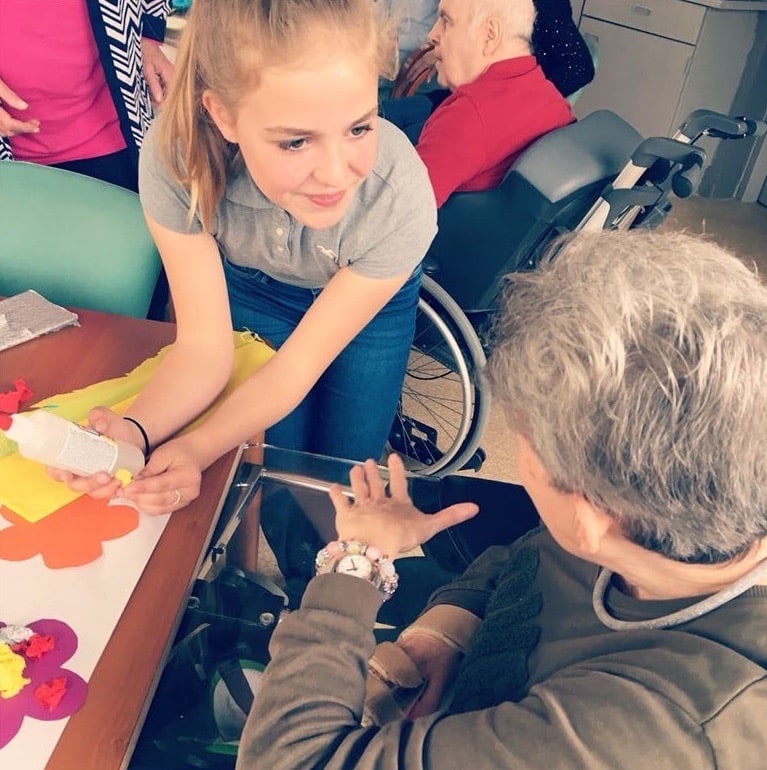
Organizers hear from teachers that some kids want to visit independently after school. By introducing children to dementia early, it lays the foundation for society to be more understanding of dementia in the long-term, Dassen said.
Other initiatives recognized by the Anti-Stigma Award had a broader focus, looking to reach the general population. An Italian initiative to make communities more welcoming and inclusive for people living with dementia was a runner-up.
Third prize went to the Alzheimer Society’s outreach to the United Kingdom’s Punjabi-speaking population, which highlights personal experiences of people within the community living with dementia.
The award jury, which included people living with dementia, members of the Alzheimer Europe Foundation, and representatives from sponsors Lilly, Biogen and Roche, decided to spotlight other initiatives that weren’t finalists on the website. Projects range from British Dementia Craftivists, who challenge perceptions of the limitations of dementia through crafting, to depictions of Alzheimer’s in a popular Turkish TV show.
Georges said that many of the initiatives can be replicated elsewhere.
“By showcasing some of these examples, you might actually give ideas to other organizations who would also be interested in combating stigma,” Georges said.
